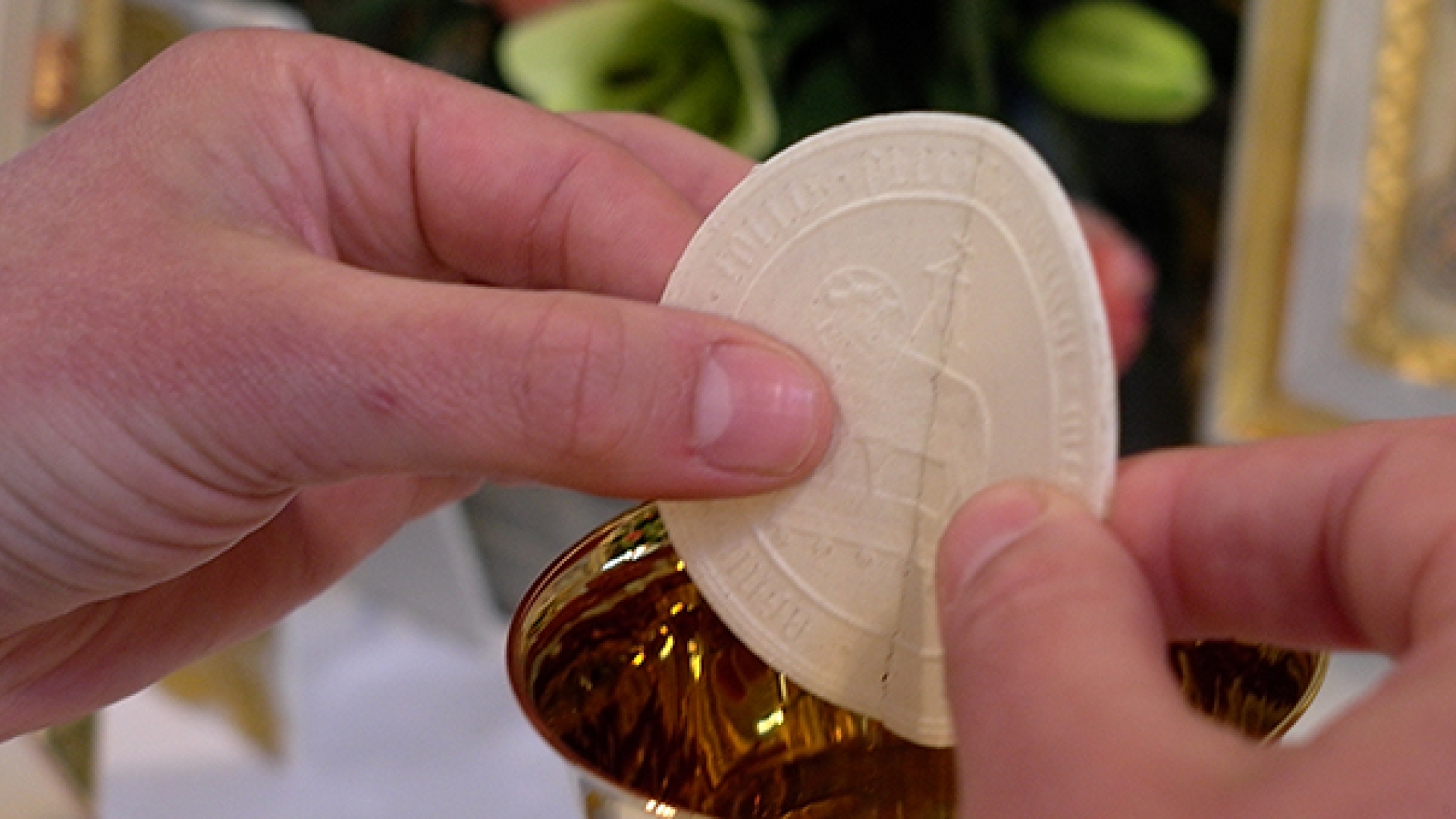Is God Calling Me to Become a Priest?

These young men must spend at least six years in the seminary before being ordained priests.
The first step in fulfilling a vocation to the priesthood or any form of religious life is to listen carefully for the call of God. The best means to this end are fervent prayer—which is simply the lifting of the mind to God—and worthy reception of the sacraments—which assumes a habitual state of grace or friendship with God. The young (or not so young) man will thus dispose himself to hear the divine call, for God only speaks to those who are ready to listen and to act. Listen carefully to the call of God.
A Vocation is Not Necessarily Found in Strong Emotions or Intense Feelings
Sensible consolations do sometimes complement the recognition of a vocation, but they do not indicate a call to the priesthood. A true vocation is instead expressed through a firm, determined, and constant desire to serve God by sacrificing oneself for the good of others. This selfless desire was Christ’s primary motivation while on earth, and it must be the same for all future priests.
Once a man recognizes that he possesses this persistent desire, he should then consult with a local priest and seek entrance to a seminary, provided, of course, there are no major impediments. This is the first and most important step in fulfilling a priestly vocation.
Duty of Discernment
Now the duty of discerning this man’s calling falls primarily to the seminary rector and to the future priest’s spiritual director, for God, through the command of the local bishop, has appointed these men especially to this difficult and important task. So long as the aspiring priest is honest and sincere in his actions and words, the true nature of his vocation will undoubtedly become clear.
The future priest, besides this pious intention to honor God and serve souls, must also show academic promise, moral discipline, psychological health, common sense, and intellectual maturity. All of these qualities are essential for a successful priestly ministry. Likewise, he cannot be driven by his emotions, attached to physical pleasures, or desirous of worldly praise and renown. Such defects would gravely hinder his pastoral duties and mar his relations with God.
Ad Catholici Sacerdotii
Pope Pius XI gives an excellent summary of the qualities bishops, seminary rectors, and spiritual directors should seek and encourage in all aspiring priests:
"The head of the seminary lovingly follows the youths entrusted to his care and studies the inclinations of each. His watchful and experienced eye will perceive, without difficulty, whether one or another have, or have not, a true priestly vocation. This...is not established so much by some inner feeling or devout attraction, which may sometimes be absent or hardly perceptible, but rather by a right intention in the aspirant together with a combination of physical, intellectual and moral qualities which make him fitted for such a state of life. He must look to the priesthood solely from the noble motive of consecrating himself to the service of God and the salvation of souls. He must likewise have, or at least strive earnestly to acquire, solid piety, perfect purity of life and sufficient knowledge...thus he shows that he is called by God to the priestly state."
"Whoever, on the other hand, urged on, perhaps, by ill-advised parents, looks to this state as a means to temporal and earthly gains which he imagines and desires in the priesthood; ...whoever is intractable, unruly or undisciplined, has small taste for piety, is not industrious, and shows little zeal for souls; whoever has a special tendency to sensuality, and after long trial has not proved he can conquer it; whoever has no aptitude for study and who will be unable to follow the prescribed courses with due satisfaction; all such cases show that they are not intended for the priesthood."
Pope Pius XI, Ad Catholici Sacerdotii
Rigorous and Demanding Preparation
Preparation for authentic priestly life is thus rigorous and demanding, but it is not without reward. Christ himself, when asked by His apostles, the first priests, what their reward would be, answered:
"Every one that has left house, or brethren, or sisters, or father, or mother, or wife, or children, or lands for my name's sake, shall receive a hundredfold, and shall possess life everlasting." (Matt. 19: 29)